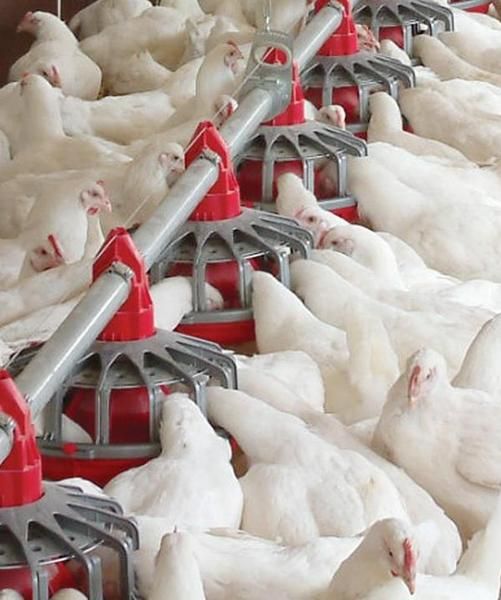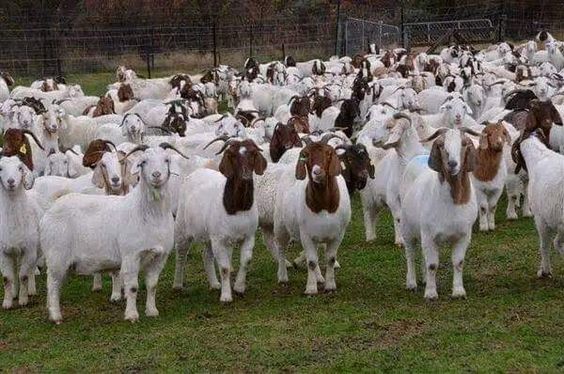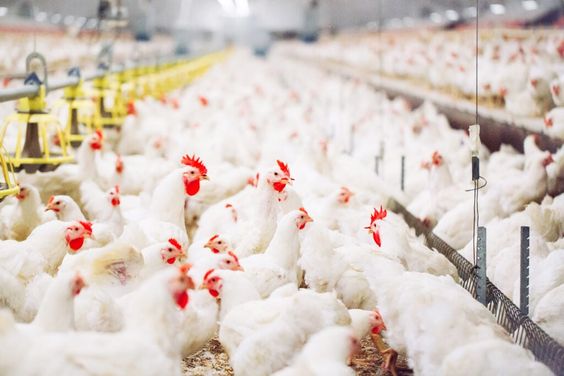Organic Chicken Cultivation: Raising Healthy Birds, Naturally
Organic chicken cultivation is a method of raising chickens that prioritizes natural processes and the well-being of the birds. This approach contrasts with conventional chicken farming, which often utilizes antibiotics, growth hormones, and confined living spaces.This comprehensive guide delves into the world of organic chicken cultivation, exploring its benefits, objectives, practical considerations, and valuable insights for anyone interested in raising healthy, happy chickens.
Unveiling the Benefits of Organic Chicken Cultivation
Choosing the organic route for raising chickens offers a multitude of advantages for both consumers and the environment:
-
Superior Quality Meat and Eggs: Organic chickens raised on a natural diet free from antibiotics and growth hormones produce meat and eggs with a richer flavor and potentially higher nutritional value. Studies suggest organic chicken may contain higher levels of omega-3 fatty acids and antioxidants compared to conventionally raised birds.
-
Enhanced Animal Welfare: Organic standards mandate ample outdoor access for chickens, allowing them to express natural behaviors like foraging, dust bathing, and social interaction. This translates to healthier and less stressed birds.
-
Environmentally Sustainable Practices: Organic chicken cultivation promotes practices that are kinder to the environment. Organic feed production relies on organic fertilizers and pest control methods, minimizing pollution and promoting biodiversity. Additionally, the use of antibiotics in conventional farming contributes to antibiotic resistance in bacteria, a growing public health concern. Opting for organic helps combat this issue.
-
Supporting Local Economies: Organic chicken farming often involves smaller, independent farms. Buying organic chickens supports these local businesses and contributes to a more sustainable food system.
Objectives of Organic Chicken Cultivation
Organic chicken cultivation aims to achieve several key objectives:
-
Produce high-quality, healthy chicken products: The focus lies on creating a natural environment for chickens to thrive, leading to healthier birds and, consequently, healthier meat and eggs for consumers.
-
Ensure animal welfare: Organic standards emphasize providing chickens with ample space, access to sunlight and fresh air, and a natural diet, resulting in improved bird wellbeing.
-
Promote environmental sustainability: By adopting organic practices, chicken farmers contribute to reducing pollution, conserving soil health, and promoting biodiversity.
-
Build consumer trust: The organic label signifies a commitment to transparency and ethical food production practices, which can build trust and loyalty among consumers seeking healthy and sustainable food options.
Putting Organic Chicken Cultivation into Practice: Key Considerations
Embarking on the journey of organic chicken cultivation requires careful planning and consideration of several crucial factors:
-
Land and Facilities: Organic standards dictate minimum space requirements per chicken. You’ll need suitable land for building a coop with ample outdoor space for the birds to roam. The coop itself should be well-ventilated, insulated for temperature control, and provide nesting boxes for laying hens.
-
Selecting Breeds: Choosing breeds suited to your climate and purpose is vital. Some heritage breeds are particularly well-adapted to organic environments. Consider factors like egg production for laying hens or meat production for broilers.
-
Organic Feed: A critical aspect is sourcing certified organic feed for your chickens. Organic feed comprises grains, legumes, and other ingredients grown without synthetic pesticides or fertilizers. Some farms may even produce their own feed.
-
Disease Prevention and Treatment: Organic standards restrict the use of antibiotics and synthetic medications. Maintaining a clean environment, providing a balanced diet, and utilizing natural prevention methods are key to keeping your flock healthy. Vaccination is still permitted under organic regulations.
-
Predator Protection: Chickens are vulnerable to predators like foxes, hawks, and raccoons. Implementing secure fencing and predator-proof coop construction are essential to safeguard your flock.
Creative Strategies for Thriving in Organic Chicken Cultivation
Beyond the essentials, there are innovative approaches that can enhance your organic chicken farm:
-
Mobile Coops (Chicken Tractors): These moveable structures allow chickens to access fresh pasture on a daily basis, promoting natural foraging and enriching their environment.
-
Composting Chicken Manure: Chicken manure is a valuable organic fertilizer. Composting it creates nutrient-rich material for your garden or feed for other animals, further promoting sustainability within your farm.
-
Integrating Other Farm Animals: Introducing ducks or geese into your chicken run can enhance pest control and create a symbiotic relationship between different species.
-
Creating a Self-Sufficient System: Aiming to produce as much of your chicken feed as possible on your land can significantly reduce costs and increase the self-sufficiency of your farm.
-
Direct Marketing to Consumers: Selling your organic chicken products directly to consumers at farmer’s markets or through a Community Supported Agriculture (CSA) program allows you to connect with your customers and potentially command a premium price for your ethically raised produce.
Advantages of Organic Chicken Cultivation: A Compelling Case
While organic chicken cultivation requires more planning and effort compared to conventional methods, the advantages it offers are undeniable:
-
Healthier Products:potentially offering health benefits for consumers. Additionally, organic chickens raised on a natural diet may have higher levels of beneficial omega-3 fatty acids and antioxidants.
-
Improved Animal Welfare: Organic standards ensure chickens have access to natural behaviors and environments. This leads to happier, less stressed birds, resulting in improved meat quality and potentially reducing the risk of foodborne illnesses.
-
Environmentally Sustainable Practices: Organic chicken cultivation minimizes environmental impact by avoiding synthetic fertilizers, pesticides, and antibiotics. This promotes soil health, reduces pollution, and fosters biodiversity.
-
Supporting Local Economies: Buying organic chickens supports independent farms and contributes to a more sustainable food system, where farmers receive fair prices for their ethically raised products.
-
Building Consumer Trust: The organic label signifies transparency and ethical food production practices. Consumers seeking healthy and sustainable food options can feel confident in making informed choices when buying organic chicken.
Overcoming Challenges and Finding Success
Organic chicken cultivation, although beneficial, is not without its challenges:
-
Higher Production Costs: Organic feed, smaller flock sizes, and potentially lower yields can lead to higher production costs compared to conventional methods.
-
Increased Management Effort: Organic practices require more attention to natural disease prevention, predator control, and maintaining a clean environment for the birds.
-
Limited Availability: Organic chicken products may not always be readily available in all areas, especially in regions with fewer organic farms.
Despite these challenges, there are ways to find success in organic chicken cultivation:
-
Direct Marketing: Selling directly to consumers through farmers’ markets or CSAs allows you to capture a premium price for your product and build relationships with your customer base.
-
Value-Added Products: Processing your own chicken into unique products like sausages, rotisserie chickens, or marinated cuts can increase your profit margins and cater to consumer preferences.
-
Cooperative Marketing: Partnering with other local organic farms allows for shared resources, marketing efforts, and potentially larger buying power for feed and supplies.
-
Government Programs: Many regions offer support programs for organic farmers, including grants, technical assistance, and educational resources.
The Future of Organic Chicken Cultivation: Innovation and Growth
The demand for organic chicken is steadily increasing as consumers become more conscious of food origins and the impact of their choices on their health and the environment. This trend presents exciting opportunities for organic chicken cultivation:
-
Technological Advancements: New technologies like automated feeders, watering systems, and disease monitoring tools can enhance efficiency and reduce labor needs for organic chicken farms.
-
Breeding Programs: Developing breeds specifically suited to organic environments can further enhance the success and sustainability of organic chicken production.
-
Consumer Education: Raising awareness about the benefits of organic chicken can encourage more consumers to make the switch, expanding the market and supporting organic farmers.
-
Policy and Regulations: Policy changes and regulations that incentivize organic farming practices and create a level playing field for organic producers can further bolster the growth of the sector.





